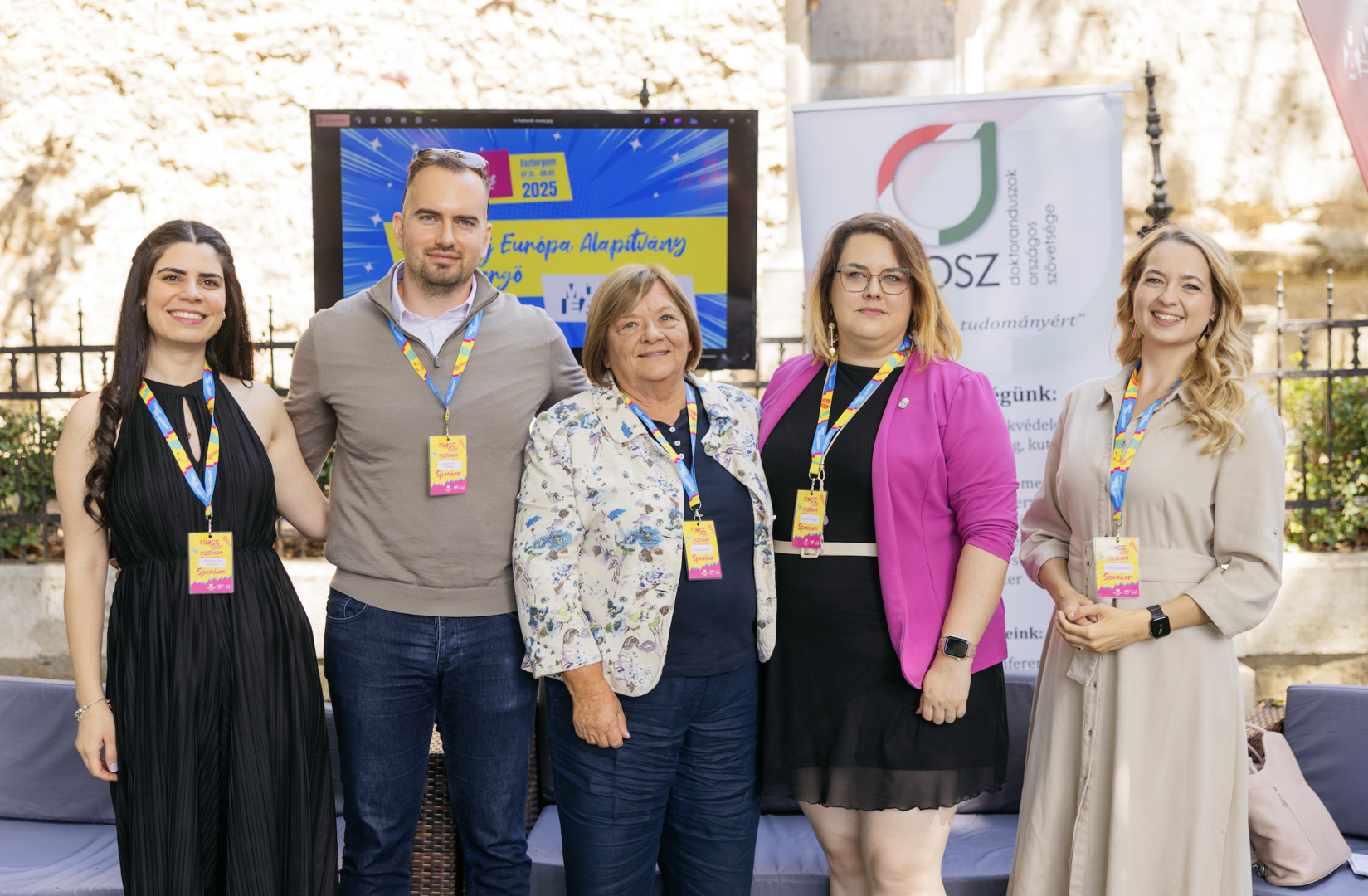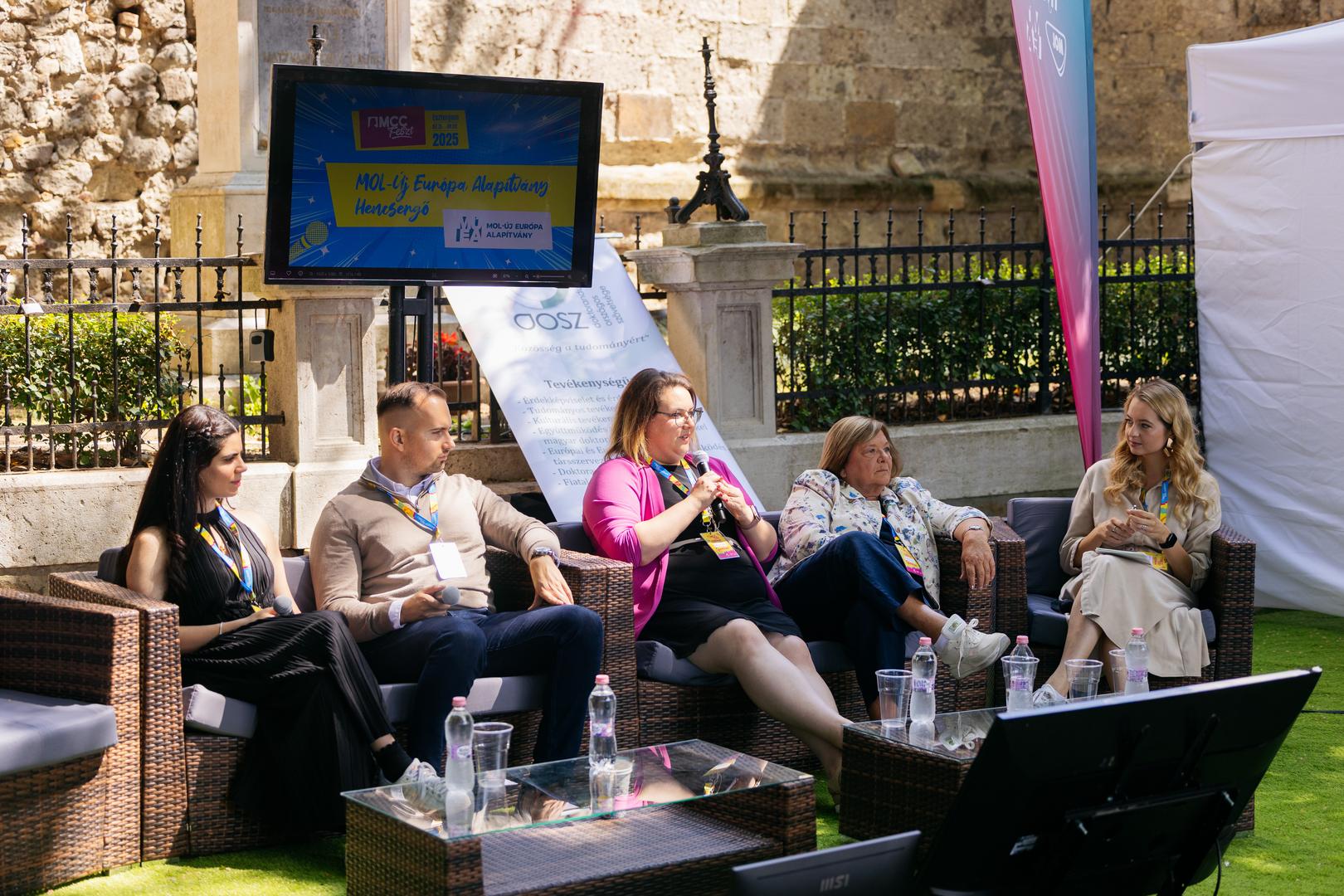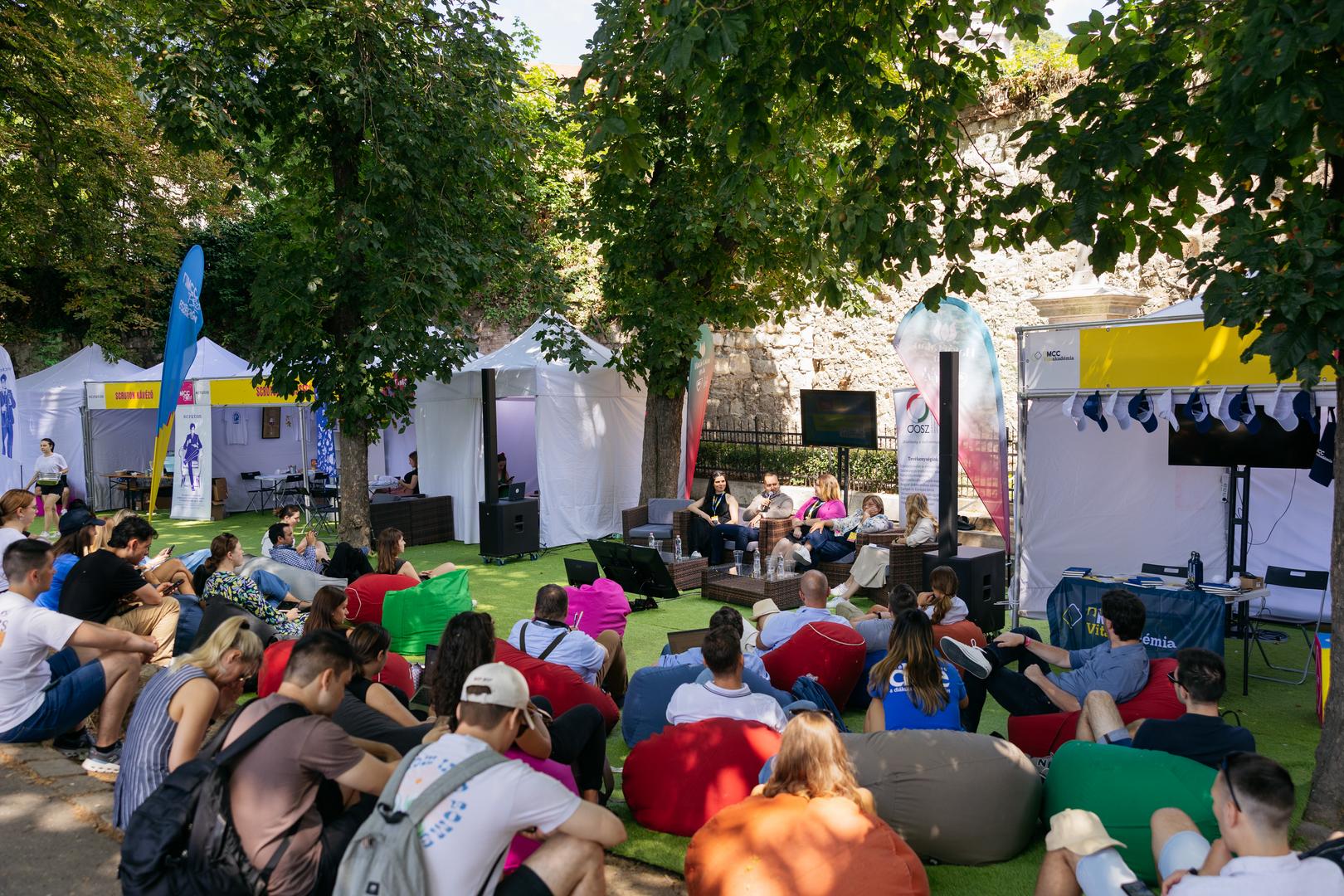
As part of the 2025 MCC Festival in Esztergom, a key panel discussion titled “Hungarian Brain:Young Hungarian Researchers Abroad, Foreign Doctoral Students in Hungary” brought together academic and industry experts to reflect on the evolving dynamics of Hungary’s research landscape. The session, held on July 31, focused on the country’s role in global scientific mobility and the importance of building inclusive, long-term research networks.
The panel was organised by the Hungarian Association of PhD and DLA Students (DOSZ) and featured voices from academia, research, and industry.
Prof. Dr. Valéria Csépe, Full Member of the Hungarian Academy of Sciences and Academia Europaea, Professor Emeritus, and Honorary President of MAB;
Dr. Viktória Sugár, Vice-Rector for Sustainability and Priority Developments at Óbuda University;
Rawand Ben Brahim, Graduating PhD Candidate, Chair of DOSZ international committee (2022-2025) & Researcher at the Europe Strategy Research Institute – Eötvös József Research Centre;
Konrád Keresztes, Deputy Director for Health Policy and Communication at MSD Pharma Hungary Ltd.
The discussion was moderated by Anna Taraczközi, Member of the DOSZ Presidency responsible for International Relations.

Speakers addressed the challenges and opportunities that Hungary faces in connecting international PhD students with Hungarian researchers working abroad.
Professor Csépe emphasised that “science has always been global,” and highlighted the essential role of doctoral schools and interdisciplinary training in building meaningful academic communities and calling for deeper commitment to mentorship and visibility in international research. She noted the significant structural imbalance within doctoral education, stating that students often begin actual research only in their fifth semester due to credit systems, coursework, and teaching. She also mentioned the 2009 Momentum programme designed to bring back Hungarian researchers, which initially met resistance from the scientific community. She further stressed that quality assurance in science must extend beyond scientometric indicators to include infrastructure, institutional management, and long-term research outcomes.
Dr. Sugár brought up the institutional responsibility of Hungarian universities to foster both local and global cooperation. She outlined efforts by Óbuda University to involve international students more actively in campus life and research initiatives, including the development of an international alumni network and the integration of foreign students into innovation ecosystems. She highlighted the introduction of cooperative doctoral programmes in 2021, which connect academic training with industry needs. Emphasising long-term planning, she noted the importance of providing PhD candidates with a clear vision for their postdoctoral careers and connecting with Hungarian researchers abroad as potential partners.
Rawand Ben Brahim offered both a personal and structural perspective on the lived realities of international PhD candidates in Hungary. She pointed to language accessibility and bureaucratic complexity as ongoing challenges faced by more than 10.000 international doctoral students. She framed the current situation as both a brain gain and a potential brain loss to Hungary, where talented researchers may be unable to stay in Hungary due to legal obstacles. She also pointed to the successes of programs such as Stipendium Hungaricum Scholarship Program and DOSZ’s Ambassador System for international engagement and inclusion. She is currently exploring the design of a mobile app to connect researchers around the world based on shared interests, themes, and expertise. A “scientific matchmaking app”, an idea that received notable interest from both panelists and audience members.
Konrád Keresztes brought insights from the private sector. He drew attention to the role of knowledge circulation in pharmaceutical innovation, calling for closer collaboration between academic institutions and industry. He advocated for targeted programmes to connect PhD researchers with research-based companies and proposed setting soft targets or policy guidance to encourage companies to hire doctoral talent more proactively. Keresztes also referenced the achievements of Hungary’s two recent Nobel Prize laureates in life sciences, Katalin Karikó and Ferenc Krausz, as evidence of the country’s scientific potential.
During the open discussion, panelists and audience members discussed policy recommendations for improving Hungary’s scientific integration. Suggestions included increased use of English in academic administration, the creation of a centralised portal for research opportunities, and the digital ‘scientific matchmaking app’ as a promising tool to foster more targeted, cross-institutional collaboration within the research community.
The session concluded with a shared recognition of Hungary’s strategic location and academic potential. Participants agreed that improving access to information, reducing bureaucratic burdens, and fostering inclusive communities are essential steps in transforming Hungary from a stopover in research mobility to a long-term hub for scientific collaboration.
